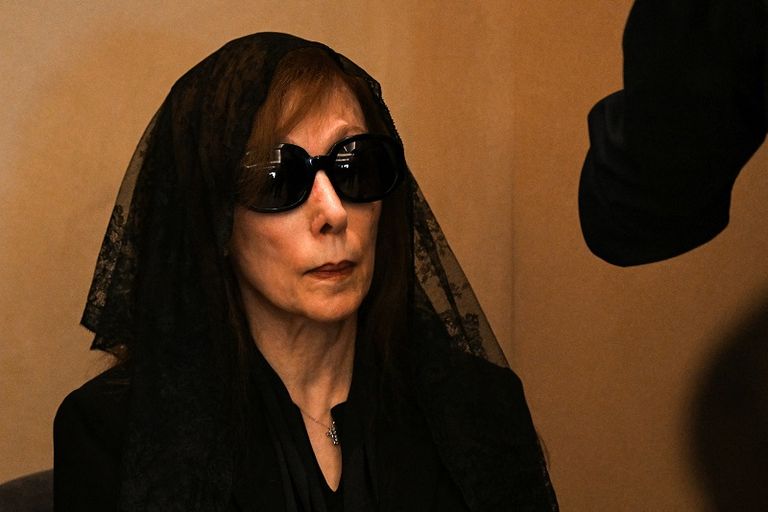The legendary Lebanese singer Fairouz was seen attending the funeral of her son on early Monday morning, 28 July, the renowned composer and playwright Ziad Rahbani, who passed away at the age of 69 on Saturday, 26 July, after a long battle with illness.
The funeral was held at the Church of Our Lady’s Dormition in the town of Al-Muhayditha, in the Bikfaya area, east of Beirut. A large crowd of prominent figures from the artistic, political, and social spheres attended the ceremony, alongside fans and admirers of the Rahbani legacy.
The attendees also included leading Lebanese artists and politicians, including the First Lady and parliamentary figures.
Lebanese President Joseph Aoun described him as “a living conscience, a rebel voice against injustice, and an honest mirror to the oppressed.”
The Egyptian Musicians’ Syndicate, led by artist Mostafa Kamel, issued a statement mourning his passing: “With his death, we bid farewell to a singular artistic voice, a visionary who enriched Arabic music and theatre with bold, innovative works that continue to resonate across the Arab world.”
Rahbani was born in 1956 in Antelias, a suburb of Beirut, as the eldest son of iconic Lebanese singer Fairuz and the late composer Assi Rahbani, one of the renowned Rahbani Brothers.
Known for his political satire and rebellious theatre plays that shook the foundations of postwar Lebanon, Rahbani’s legacy is also largely shaped by his musical collaborations with his mother, the legendary Fairuz, which cemented his place in the cultural soul of the region.
Released in 1987, Kifak Inta (How Are You?, 1987) is perhaps one of the most iconic songs Rahbani composed for Fairuz. It remains one of the most streamed songs on platforms like Anghami and YouTube, especially among younger generations.
One of his most memorable lines is: “I’m not an infidel, but hunger is.” This line is Rahbani’s most famous and enduring quote, taken from his 1980 play “Bennesbeh Labokra Chou?” (As for Tomorrow, What?, 1980).
Over time, this quote was adopted across the Arab world as a powerful critique of failed governance and corruption. It is still heard today in protests, spoken word, and everyday expressions of frustration.







Comments (0)